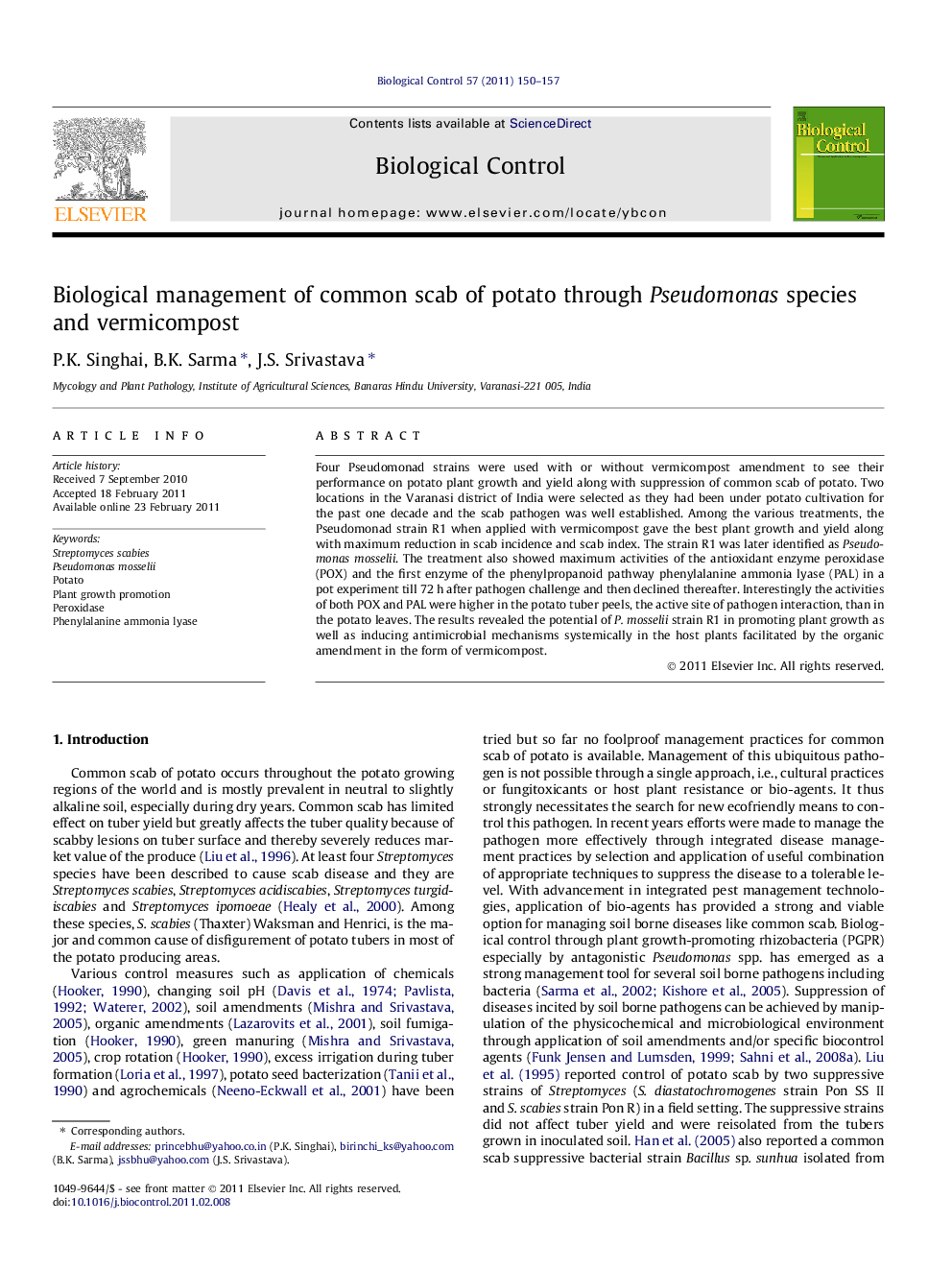| Article ID | Journal | Published Year | Pages | File Type |
|---|---|---|---|---|
| 4504212 | Biological Control | 2011 | 8 Pages |
Four Pseudomonad strains were used with or without vermicompost amendment to see their performance on potato plant growth and yield along with suppression of common scab of potato. Two locations in the Varanasi district of India were selected as they had been under potato cultivation for the past one decade and the scab pathogen was well established. Among the various treatments, the Pseudomonad strain R1 when applied with vermicompost gave the best plant growth and yield along with maximum reduction in scab incidence and scab index. The strain R1 was later identified as Pseudomonas mosselii. The treatment also showed maximum activities of the antioxidant enzyme peroxidase (POX) and the first enzyme of the phenylpropanoid pathway phenylalanine ammonia lyase (PAL) in a pot experiment till 72 h after pathogen challenge and then declined thereafter. Interestingly the activities of both POX and PAL were higher in the potato tuber peels, the active site of pathogen interaction, than in the potato leaves. The results revealed the potential of P. mosselii strain R1 in promoting plant growth as well as inducing antimicrobial mechanisms systemically in the host plants facilitated by the organic amendment in the form of vermicompost.
Graphical abstractFigure optionsDownload full-size imageDownload as PowerPoint slideResearch highlights► Pseudomonas mosselii reduced common scab incidence and index in potato. ► P. mosselii increased peroxidase and PAL activities in tuber peel. ► Performance of P. mosselii enhanced by vermicompost. ► P. mosselii and vermicompost in combination increased tuber yield.
